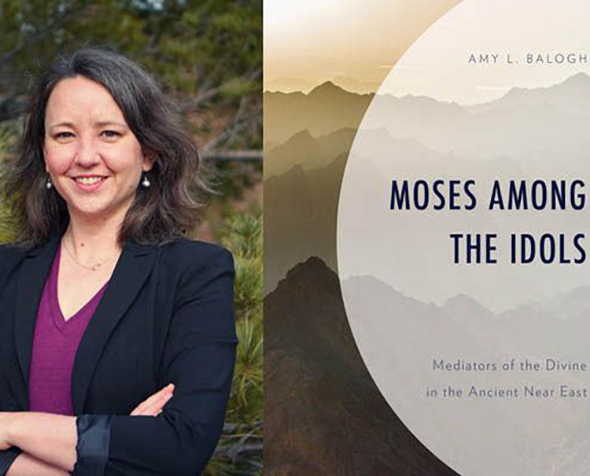Inaugural Postdoctoral Fellow Studies Jewish Experience Across Disciplines
Moshe Kornfeld is teaching in the DU Center for Judaic Studies

While unpacking sacks of mail one day, Moshe Kornfeld came across a stack of books and papers that changed his career trajectory forever. Kornfeld, an undergraduate who wasn’t sure what he was interested in studying, had taken time off in the middle of college to live in Uganda with the Abayudaya, a local Jewish community. He began to read through a paper that used an anthropological lens to study this group.
Kornfeld says his time in Uganda and his decision to embrace anthropology as a field of study “were formative experiences that still push on what I’m trying to figure out in my own academic work.” Anthropological theories and methods provided him with tools for thinking about his own background.
“I used this body of ideas and theories to try to understand my own experiences growing up in the United States and Israel in Jewish communities that raised more questions than answers,” he explains. “I was ultimately drawn to anthropology to try to understand the diversity of Jewish life.”
Today, with an anthropology BA, MA and PhD in hand, Kornfeld is working on a book and a podcast, and is teaching in the DU Center for Judaic Studies (CJS) as the inaugural Postdoctoral Fellow in the American Jewish Experience. The postdoc position aims to deepen students' understanding of the Jewish American experience through interdisciplinary learning and the study of primary materials DU’s Ira M. & Peryle Hayutin Beck Archives. The two-year position is made possible with support from Dr. Helen Morris, a lifelong student and friend of CJS.
Kornfeld earned his PhD in 2015 from the University of Michigan and has since held postdoctoral positions at CU Boulder and Washington University in St. Louis. His research takes the study of American Jews as a lens through which to analyze complicated intersections of religion, economy and politics.
In the classroom, Kornfeld encourages his students to be open to surprising experiences, even when they’re challenging. His current class, American Jewish Experience, takes as its subject the “creativity, innovation and diversity of how Judaism is practiced in the United States.” In this experiential learning course, students go on “excursions” into the Denver community where that can study expressions of Jewish life — in synagogues; at museums, restaurants and shops; and even at a Jewish farm in east Denver.
Moshe’s current book project takes an ethnographic approach to Jewish philanthropy and activism in New Orleans in the wake of Hurricane Katrina. Kornfeld spent time living among various Jewish communities, organizations, activists and service workers. As an ethnographer, Kornfeld immersed himself in the day-to-day lives and conversations of youth activist communities who were developing a Jewish identity in the midst of a humanitarian and cultural crisis.
Now at DU, Kornfeld is connecting his work in New Orleans to a broadened sense of what American Jewish philanthropic initiatives look like across the United States. This comparative work has also been supported by a research fellowship from the Rocky Mountain Jewish Historical Society.
“Part of my work at DU is to do comparative studies between histories and archives of Jewish philanthropy in New Orleans and here in Colorado.”
Kornfeld’s podcast, Kol Colorado, builds on this comparative approach, drawing on materials from DU’s Beck Archives to further explore the Jewish experience past and present.
“Kol Colorado pairs something from the archives with something happening in Colorado Jewish life today. The episode I’m working on right now pairs a Jewish educational farm in the Lowry neighborhood with this historical agricultural settlement in Cotopaxi, CO that started in 1881. Eastern European immigrants came to Cotopaxi to try to make a go at farming and became the backbone figures of the immigrant Orthodox Jewish community in Colorado. I’m juxtaposing these two groups to put contemporary and historical communities in conversation.”
Kornfeld will be teaching a course on religion and environmentalism in Spring 2020 and a class on religion and politics that will coincide with next fall’s election season.
For more information and to support projects like this, visit the DU Center for Judaic Studies website.






